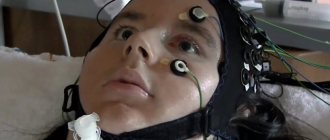Plyushkin syndrome is a pathological accumulation of rubbish. Man is a psycho-emotional being, and therefore we all tend to leave some things as souvenirs. A child’s first shoes, postcards from loved ones, various little things that remind you of important life events. All this is nice, but only until the time when there are too many useless objects.
The mental illness Plyushkin syndrome is called syllogomania. Another name is hoarding. The deviation requires treatment and correction, and if you turn a blind eye to the addiction to hoarding, sooner or later your home will turn into a dump.
Origin of the name of the syndrome
This behavior is named after the famous character from the work “Dead Souls,” written by Gogol in 1841. The fictional landowner suffers from a mental disorder that dictates to him the rules for storing things.
The character drags completely useless objects into the house and leaves them “until the right opportunity.” It is not surprising that his name has become a household name and now denotes the corresponding syndrome.
Causes
Syllogomania - what is it: a disease or a behavioral feature of a person? How to treat Plyushkin syndrome? Let's look further and start by identifying the reasons.
Attachment to things is characteristic of people of different ages. If this is a child, then the main causes of Plyushkin syndrome or unreasonable hoarding are:
- stressful situations;
- psychological trauma;
- lack of parental attention.
In case of lack of attention, the child begins to “accumulate” rare moments of joy when he manages to have a good time with his parents. He keeps everything connected with such moments - sweet wrappers, broken toys, drawings. Severe stress and trauma disrupt the psyche, which subsequently leads to the formation of deviations.
Elderly and senile people most often suffer from Plyushkin syndrome, which is most often associated with diseases: schizophrenia, dementia, obsessive-compulsive disorder. Elderly people now living in the countries of the former USSR remember times of famine and shortages of everything. Access to food, medicine, clothing, shoes, household chemicals and other important things was limited. As a result, they developed a passion for hoarding: if some disaster happened, they must have a supply of everything necessary for survival. Even if it's canned food that expired 5 years ago.
Young and middle-aged people are also susceptible to mental illness, stress and trauma. For example, the death of a loved one is a traumatic event, due to which all the belongings of the deceased are stored and protected. Even if it's broken fishing rods, a holey sweater or burnt out light bulbs.
Briefly speaking, treatment of Plyushkin syndrome begins with searching for the causes of its occurrence. But it is necessary to treat the deviation, otherwise a whole dump of useless rubbish will accumulate in the house.
Train your brain
When hearing the word “old age,” many people first of all think of sagging, wrinkled skin, a bent back, and gray hair.
These are the most obvious signs, what is visible at first glance. But age-related changes also occur in the nervous system, and if you do not work on them, they can lead to devastating consequences. Every person can live to a ripe old age maintaining a clear mind, but, unfortunately, not everyone succeeds. Many people experience decreased mental abilities, and some develop dementia, a disease that ultimately makes a person disabled, unable to perform the simplest tasks like washing and dressing. It's impossible to be 100% protected, but you can take some precautions in advance. The brain, like muscles, can and should be trained. Any mental work is useful, even banal crossword puzzles, computer and board games, and reading books.
At 40, it’s not too late to learn something new, even get a full-fledged education. This will not only support the nervous system, but also make you feel young again, feel that a new stage in life is beginning, and that there is still much to come.
In addition to brain training, experts recommend two other effective measures to maintain normal nervous system function: controlling blood pressure and regular physical activity.
Stages of development
What Plyushkin syndrome is can be clearly seen in this photo:
Like other diseases, syllogomania develops gradually. At first, a person refuses to say goodbye to old things that should go to the trash heap. Then he begins to store everything, even broken down equipment and torn clothes. Next comes the collecting stage: “Plyushkin” picks up unnecessary things from landfills and garbage containers that seem necessary and useful to him.
Often neglected patients allow dozens of stray animals into the house, turning the home into a foul-smelling shelter. Plyushkin syndrome becomes a real problem not only for the patient’s relatives, but also for his neighbors.
Reduce your sugar intake
If water is your friend, then sugary soda, like all products containing added sugars, is your worst enemy.
They make you feel older, and they actually make you older. Added sugars lead to obesity, tooth decay, diabetes, non-alcoholic fatty liver disease, and worsen menopause. In turn, these conditions are risk factors for the development of cardiovascular diseases and cancer. Excess fat tissue is dangerous: it leads to chronic inflammation in the body and produces substances that cause certain hormonal effects. Added sugars give a burst of energy, but soon this “battery” runs out, and fatigue and drowsiness occur. They cause a glycation reaction, and its products damage other molecules. Collagen, the protein that retains fluid and ensures the elasticity and beauty of your skin, is severely damaged. At the same time, added sugars cause an addiction-like state, and, once you become a sweet tooth, they are often not so easy to “get off.” In addition to soda, a person gets the lion's share of added sugars from confectionery, chocolate, desserts based on dairy products, tea, and white bread. Experts advise that sugar should account for no more than 10% of your daily calories. And if you want to treat yourself to something sweet, it is better to choose fruits - they contain “good” carbohydrates.
Varieties of the syndrome
Based on the type of “gathering”, hoarding is divided into several types:
- Cluttering your home with old items, sometimes vintage, but in most cases still useless.
- The desire to place as many animals as possible in your home.
- Hoarding food in excessive quantities, as well as eating expired food.
- Preserving things that belonged to loved ones.
- Accumulating things that will supposedly be useful one day.
Sometimes several varieties merge into one, and in particularly advanced cases, all types of Plyushkin syndrome are observed simultaneously.
Don't skip breakfast
It's so easy to skip breakfast when you have a busy day ahead and need to rush to work. Often there is a temptation to limit yourself to a cup of coffee, at best a hastily made sandwich, and then have a snack somewhere during the day. But in fact, the first meal is very important, and it is necessary that it contains a lot of protein. In the first half of the day, metabolic processes in the body are most active. The food taken is quickly and well absorbed. Eating nutritious breakfasts helps control hunger throughout the day and maintain a healthy weight.
In addition, some scientific studies show that regular, nutritious meals in the morning help reduce cravings for sweets and salty foods. If you get up early and have a good breakfast, and then have an equally good lunch, there is a high probability that by the evening you will not be so obsessively drawn to the refrigerator.
Who is most susceptible to this syndrome?
Plyushkin syndrome is a mental illness, and older people suffer from it more than others. As mentioned above, living elderly people have a passion for hoarding due to the fresh memory of the shortage of almost all goods at the end of the last century.
It is difficult to determine exactly which categories of the population are more prone to pathological hoarding. Anyone can face personal disaster, severe stress, or the loss of loved ones. The risk group includes persons with a tendency to mental disorders. These may be people whose relatives have schizophrenia, Alzheimer's disease, personality disorders and other diseases of a similar nature.
Symptoms
Plyushkin syndrome - what is it and what are its symptoms? Recognizing a person suffering from syllogomania is quite simple. But only in the case when the disease is advanced and it is difficult to enter the home of such a “Plyushkin”, since the entire space is occupied by heaps of rubbish.
There are some other aspects by which Comrade Plyushkin is defined:
- Collecting and storing things thrown away by someone.
- Creating a home shelter for a large number of animals.
- The desire to fill all the free space with any things.
- Storing absolutely everything, even trash.
- Reuse of disposable materials.
- Reluctance to use a new thing until the old one literally falls apart.
- Clutter, lack of structure among the rubbish.
Those who came face to face with modern Plyushkin think about what syllogomania is and how to live with such a person. If you live with older people (they constitute the main risk group), take a closer look at their habits, because preventing hoarding is easier than treating an advanced disease.
Drink more water
Water is the basis of life. Without it, vital biochemical reactions are impossible. When you're dehydrated, you by definition don't feel good and your metabolism slows down. See what important functions water performs in your body:
- promotes good digestion, prevents constipation;
- ensures free movement in the joints, as it is part of the natural biological lubricant;
- helps the brain produce neurotransmitters (substances necessary for the transmission of nerve impulses), some hormones;
- is the main component of blood;
- supports metabolism;
- provides thermoregulation.
The average person is recommended to drink 8 glasses of water daily - from 1500 to 2000 ml. But individual needs may vary depending on the characteristics of metabolism, physical activity, air temperature, etc.
How to recognize Plyushkin syndrome at an early stage
Many people know what Plyushkin syndrome is. Its manifestations in an advanced stage are noticeable immediately, but the disease develops gradually. It does not happen that just yesterday a person calmly threw away a broken ladle, and today he lovingly presses it to his chest and is not going to give up without a fight.
In the early stages, it is difficult to identify Plyushkin syndrome as a disease, but there are some tricks. So, here are the bells of early syllogomania:
- A person becomes overly attached to things and is not able to easily part with, for example, a damaged T-shirt. He puts it in a drawer with other holey and torn clothes with the intention of reusing them one day. How is not specified. It's just necessary and that's it.
- The “patient” is very reluctant to borrow things or never gives anything for temporary use. If he has had an uninteresting book lying around for a long time, which he opened and slammed shut, Plyushkin will still take care of the publication. Even from myself.
- The hope that one day everything will come in handy. Cleaning is accompanied by exclamations of approximately the following content: “Now I’ll throw away this postcard, and in 7 years I’ll want to dive into memories, and then what? Of course I will leave her!”
Plyushkin syndrome is a mental illness. How to treat an unusual disease, we will consider further.
Have sex
You can often hear that sex burns no less calories than jogging or working out in the gym.
This, of course, is a myth, but in some ways regular intimacy is not inferior to sports. During sex, brain cells produce endorphins - “hormones of happiness”, compounds that improve well-being, reduce pain and normalize sleep. In addition, growth hormone is produced, which improves the condition of the skin.
British psychologist David Weeks has studied the intimate lives of thousands of men and women for many years. In 2013, he spoke to the British Psychological Society and stated that people who have frequent sex, on average, look 5-7 years younger, thanks to the above hormones.
Also interesting are the results of a small study conducted in 2017 by scientists from the University of California, San Francisco. Researchers studied the sexual habits of 129 mothers. Women who have sex at least once a week have been found to have longer telomeres, the ends of chromosomes that protect genetic material. Gradually, telomeres shorten, this process is accelerated by unhealthy diet, bad habits, and poor environment. Physical activity, proper nutrition and, apparently, sex protect telomeres. Although the study was small, its results are cause for concern.
Treatment of the syndrome
Relatives are often perplexed about how to deal with Plyushkin syndrome, because simple requests and persuasion do not work on thrifty keepers. It is not recommended to throw out all the trash on your own in the absence of its owner, since such an event provokes stress in the “patient”.
Imagine that your favorite thing was brazenly destroyed. What emotions will you experience? The same thing happens in the soul of “Plyushkin”: you know that it’s time to throw away three bags of old shoes, but for the “sick” this is a real treasure.
Constant attempts to convince “Plyushkin” of the inadequacy of his actions will not lead to the desired result, so feel free to contact psychologists. If they don’t help, then a psychiatrist will definitely help. Drug therapy is prescribed in cases where syllogomania is provoked by another mental illness. In other cases, hoarding is corrected through psychotherapy sessions.
If you are confident in your abilities, try to achieve order yourself. Convince that old things are blocking the flow of new clean energy. Ask to demonstrate how a specific item (that should be thrown away) can be used right now. Offer one new item in exchange for 10 old ones. All these tricks help if you solve the problem systematically and systematically.
Spend more time with friends
They say that as a person ages, he wants to spend time in noisy companies less and less, and more and more often there is a desire to turn on the introvert mode and spend the weekend at home, wrapped in a blanket and turning on his favorite TV series.
But scientists believe that a lack of regular communication can have a bad effect on your health and make you age faster. In 2021, researchers from the University of North Carolina at Chapel Hill (USA) published the results of a study showing that strong connections with friends help people feel younger and even live longer. In addition, the most sociable study participants had lower blood cholesterol, lower blood pressure, and were less likely to be obese. Whatever one may say, man is a social creature.
A story from my life about a person with syllogomania
I know a family - a single mother and a ten-year-old daughter. The parent likes to forget with the help of alcohol, often leaving the child to his own devices. The girl really lacks her mother’s attention and love, and this is visible to the naked eye. Lack of attention and love from parents is a common cause of the development of Plyushkin syndrome in childhood.
The daughter tries in every way to attract her mother’s attention and constantly drags home various rubbish that she finds on the street. The woman swears and gets angry at the girl, but it is at such moments that the child feels that attention has been paid to him. Even if it is aggressive, angry, cruel, but still attention.
This peculiar Plyushkin syndrome is not the only deviation in the girl’s behavior, but only one of the manifestations of a mother’s lack of love for her child.
How to delay the onset of menopause?
At the age of 40, many women feel more acutely that time is passing. Menopause and hormonal changes are approaching, and thoughts about this can cause severe discomfort. Unfortunately, this restructuring of the female body is inevitable and irreversible. For some it happens earlier, for others later: your biological clock and the functioning of hormones are programmed in your genes. But they can be tweaked a little. Some external factors affect hormonal levels and accelerate the onset of menopause:
- Smoking. For example, one study found that women who smoke 14 or more cigarettes daily go through menopause almost 3 years earlier than non-smokers.
- Alcohol. In women who do not use it at all, their periods usually stop earlier. And moderate consumption delays the onset of menopause. But it is not exactly.
- Regular excessive physical activity and lack of proper rest.
- A large amount of polyunsaturated fats in the diet. Proteins and carbohydrates have the opposite effect.
- Low body mass index (BMI). To calculate this indicator, you need to divide your weight in kilograms by the square of your height in meters.
- Arterial hypertension.
- Rare walks in the fresh air, lack of sunlight.
- Low level of income, education, low social status. Apparently, the reason is that such women more often have to deal with the influence of various negative factors.
- Taking certain medications.
Taking hormonal contraceptives, on the contrary, slows down the onset of menopause. But this is not a reason to immediately run for pills: before taking hormones, you need to consult a doctor and choose the right medications.
This type of contraception has not only advantages, but also disadvantages. It has also been proven that if a woman gives birth to her first child late, then she will most likely experience menopause later. But even here it’s a double-edged sword: after 35 years, the number of eggs in the ovaries decreases, hormonal levels change, and it becomes more difficult to get pregnant. There is an increased likelihood that you will have to resort to IVF and other assisted reproductive technologies.
To summarize, we can say that 40 years is still quite a bit. According to the World Health Organization classification, people aged 18–44 years are considered young. However, this classification is not a universal criterion. The proverb is true, according to which a person is only as old as he feels. Biological age can differ greatly from the passport age, depending on the psycho-emotional state, how “worn out” the body is, and hormonal levels.
Genetics and hormones play a big role, but they are far from the only factor.
Much depends on lifestyle, attitude towards your health, general psychological mood, atmosphere in the family and at work. You can influence these factors, and it's never too late to start. Even if you are 40 and approaching the upper limit of youth set by WHO experts. Whatever your luggage, life goes on.









